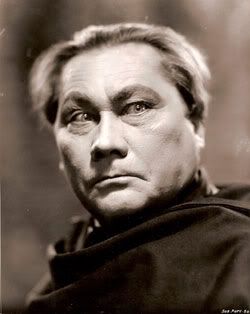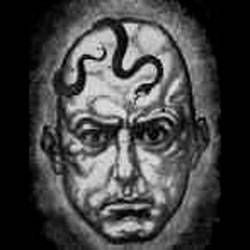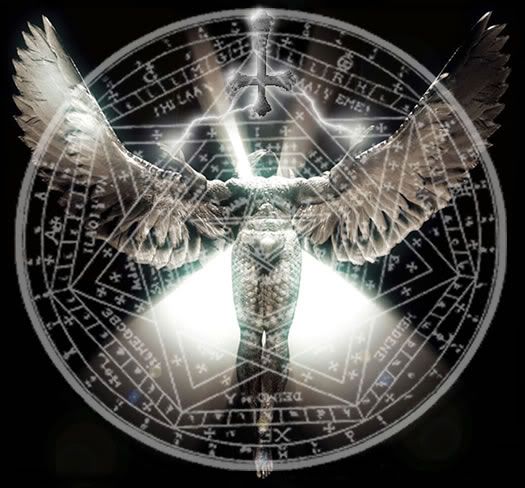The Magician
I had to read this book online. I couldn't find a hard copy anywhere for a reasonable price. Since I didn't own a Kindle or IPad or laptop or anything cool like that at the time, and being that I'm too cheap to print it out (and thought that would be a lame way to read it, anyway) I was forced to sit in front of a desktop computer like a savage and read this book on the internet, where it exists in it's entirety. So being that I couldn't read it on a plane, in the bathroom, at bedtime or while eating cereal, it took me forever to actually get through the damn thing. And like a lot of old Victorian fiction I wondered more than once if it was going to be worth it.
Turns out it was.

The villian, Oliver Haddo, is a thinly disguised Aleister Crowley, and both the real dark-arts magician as well as this fictional alter-ego reoccur as an influence in a lot of the stuff I read. Haddo himself appears occasionally in other literature (including, unsuprisingly, the League of Extraordinary Gentlemen

The foil to Haddo is his old collegiate acquantance, Dr. Porhoet. Porhoet ties the story together through his friendship with the younger main characters, whose names I can't recall because it's really not that important. Dr. Porhoet is essentially a Van Helsing stand-in, and a poor one at that. He does nothing to protect the main characters, chooses to give no advice rather than risk giving bad advice, and basically exposes the innocent young lovers of the story to Haddo. Where Van Helsing was a knowledgable hero, Porhoet waits until it is truly too late to do anything practical and attempt to atone for his passive inaction throughout the novel. What a lame-ass.
The nameless main characters are nonetheless likable and carry on a love triangle type of story that almost holds a good deal of interest in itself. Well, almost. Their run-ins with the loathsome and despicable Oliver Haddo are exciting, vulgar, mysterious and full of arcane Satanic esoterica that proves the amount of time Maugham spent in libraries doing his homework on black magic. But the long periods of time where the characters do nothing much but anguishing over their passive aggressive relationships and doing too little too late to resolve any but the simplest of problems drags the story down.

I strongly recommend this book to fans of the occult. Where casual readers will lose interest quickly due to the slow pace and narrow theme, dark magic affectionados will savor every mention of historical and mythological esoteric-a. The ending will touch the heart of HP Lovecraft fans as the work of Haddo is exposed for a gruesome abomination that must have sickened readers at the turn of the century. Overall I didn't give this book a super awesome rating, but it still earned it's loving place in my crossover universe timeline.
SPECIAL BONUS:
Rex Ingram made a 1926 movie adaptation of the book, and I have served up a slice of yummy silent black and white film footage video clip for you. Try to figure out who are the young lovers (Arthur and Maggie, I think are their names!) and who is the evil Oliver Haddo. If you can't figure it out, the captions will surely clear everything up.
Although I do remember a snake charmer scene in the novel, I can't testify that there was a sailor, balloon hat guy or that the story took place in Germany.
No comments:
Post a Comment